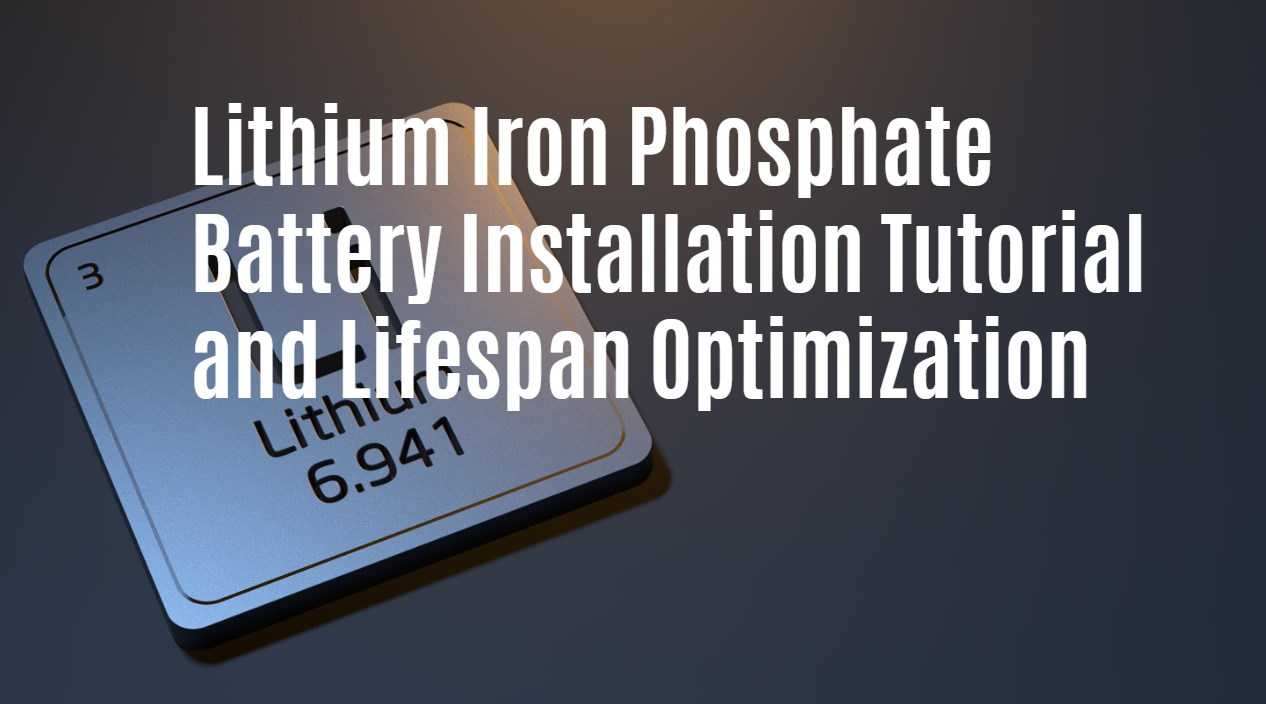Installing a Lithium Iron Phosphate (LiFePO4) battery requires careful attention to detail to ensure safety and optimal performance. These batteries are known for their long lifespan and stability, making them an excellent choice for various applications, including solar energy systems, electric vehicles, and backup power solutions. This guide will walk you through the installation process and provide tips for optimizing the lifespan of your LiFePO4 battery.
Installation Steps for LiFePO4 Batteries
1. Gather Necessary Materials and Tools
Before starting the installation, ensure you have all required materials and tools:
Wholesale lithium golf cart batteries with 10-year life? Check here.
- Materials:
- LiFePO4 battery cells
- Battery Management System (BMS)
- Nickel strips or heavy gauge wire
- Connectors (e.g., XT60 connectors)
- Heat shrink tubing
- Insulation tape
- Tools:
- Spot welder
- Soldering iron
- Wire cutters and strippers
- Multimeter
- Phillips screwdriver
2. Prepare the Battery Pack
To create a battery pack, connect multiple LiFePO4 cells in series and parallel to achieve the desired voltage and capacity. For example, to create a 12V battery pack, connect four cells in series (3.2V each).
Want OEM lithium forklift batteries at wholesale prices? Check here.
- Connect Cells: Use nickel strips to connect the positive terminal of one cell to the negative terminal of the next cell.
- Ensure Safety: Incorporate a BMS to monitor cell voltages and prevent overcharging or deep discharging.
3. Mounting the Battery
Choose a suitable location for your battery installation:
- Ensure proper ventilation to prevent overheating.
- Securely mount the battery using brackets or straps to prevent movement during operation.
4. Connect Wiring
When connecting your battery to a system:
- Positive Connection: Connect the positive terminal of the battery to the positive input of your inverter or load.
- Negative Connection: Connect the negative terminal of the battery to the negative input.
- Always connect the negative terminal last to minimize spark risk.
5. Charging Setup
LiFePO4 batteries require specific charging settings:
- Set your charger to a bulk/absorb voltage between 14.2V and 14.6V.
- Use a charger compatible with LiFePO4 chemistry to ensure optimal charging cycles.
Lifespan Optimization Tips
To maximize the lifespan of your LiFePO4 battery, consider these optimization strategies:
1. Depth of Discharge (DoD)
Limit discharging your battery below 20% capacity. Regularly discharging to lower levels can significantly reduce lifespan.
2. Temperature Management
Keep your battery in a temperature-controlled environment:
- Avoid exposing it to extreme temperatures (both high and low).
- Ideal operating temperatures are between 20°C and 25°C.
3. Regular Maintenance
Perform regular checks on connections and terminals:
- Ensure all connections are tight and free of corrosion.
- Periodically check voltage levels with a multimeter.
4. Use Quality Chargers
Invest in high-quality chargers specifically designed for LiFePO4 batteries:
- Ensure they have features like temperature compensation and automatic shut-off.
Latest News in Lithium Iron Phosphate Technology
The demand for Lithium Iron Phosphate batteries continues to rise due to their safety features and longevity. Recent advancements include:
- Enhanced BMS technology that improves monitoring capabilities.
- Innovations in cell design that increase energy density while reducing weight.
- A growing trend toward integrating these batteries into renewable energy systems, particularly solar power setups.
Redway Expert Comment
In our experience at Redway Battery, proper installation and maintenance of Lithium Iron Phosphate batteries are crucial for maximizing their lifespan. By adhering to recommended charging practices and ensuring optimal operating conditions, users can enjoy extended service life from their batteries. As technology evolves, we anticipate even more efficient solutions that will enhance performance while maintaining safety standards.”
Conclusion
Installing a Lithium Iron Phosphate battery involves careful planning and execution. By following this tutorial and implementing best practices for lifespan optimization, users can ensure reliable performance from their batteries over many years. Whether used in renewable energy systems or electric vehicles, LiFePO4 batteries represent a robust choice for modern power needs.






